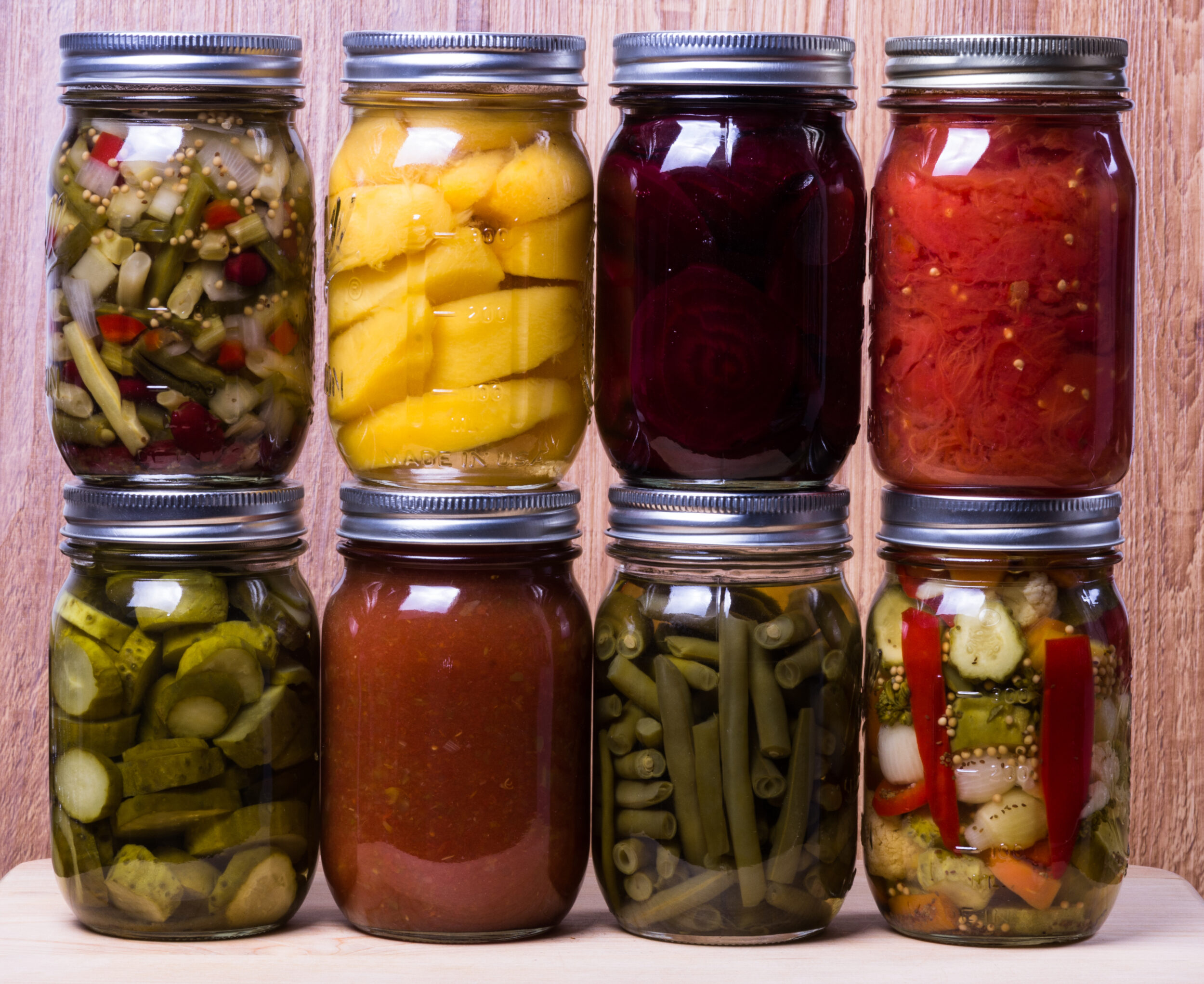Grains, Grasses & Weeds Department
Rules and Information
- Cereal samples may be exhibited in any clear 32 oz., or larger, jar that has been cleaned of all commercial labeling.
- Identify variety of sample and note field run or hand picked on the label, which may be affixed to the face of the of the jar. Display well and be creative.
- Label may include an image in the design; ex: view of the field or harvest scene. See example on next page.
- All exhibits must be from the current year’s crop.
- All field run samples must be unaltered from the combine. Participation ribbon will be awarded if determined otherwise.
- All exhibits must be received by August 23rd from 3:00 pm – 9:00 pm.
- Exhibitors should read the General Rules.
- Correct exhibit tag (i.e. Adult, Teen, Junior) must accompany all entries.
- Educational posters are strongly encouraged. See Adult and Youth Posters department. Posters are due to the Fair Office by August 2nd.
Registration Information
Registration for online entries opens July 1st. All entries need to be entered at FairEntry by August 19th. |
Due Date for
Entries
[wptb id="13197" not found ]All Lincoln County growers and their families
are urged to exhibit their grain.
All entries will be judged on the following basis:
- Variety purity and freedom from inert matter, other crop seed, and weed seed as it is processed by the combine.
- Uniformity in size, shape and color of kernels characteristic of the variety.
- Test weight characteristic of the variety.

Superintendent
Check out what you can enter in the Grains, Grasses & Weeds Department at the
Lincoln County Fair & Rodeo
The Divisions of the Grains, Grasses & Weeds Department are listed below. Once you have decided what you would like to enter at the Fair & Rodeo, you can register your exhibits at FairEntry. If you would like a copy of this department, you can download the Premium Book.

Division 1
Field Run Grains
Best 20, Blue 15, Red 10, White 5
Section 1: Winter wheat, hard-variety must be identified
Section 2: Winter wheat, soft white-variety must be identified
Section 3: Winter wheat, club-variety must be identified
Section 4: Spring wheat, variety must be identified
Section 5: Winter barley, variety must be identified, 2 row
Section 6: Winter barley, variety must be identified, 6 row
Section 7: Winter barley, other, variety must be identified
Section 8: Spring barley, variety must be identified, 2 row
Section 9: Spring barley, variety must be identified, 6 row
Section 10: Spring barley, other, variety must be identified
Section 11: Triticale, variety must be identified
Section 12: Oats, variety must be identified
Section 13: Rape
Section 14: Large grains, lentils
Section 15: Large grains, green peas
Section 16: Large grains, dry peas
Section 17: Large grains, beans, variety must be identified
Section 18: Large grains, other, variety must be identified
Section 19: Grass seed

Division 2
Hand Picked Grains
Best 25, Blue 20, Red 15, White 10
Section 1: Winter wheat, hard-variety must be identified
Section 2: Winter wheat, soft white-variety must be identified
Section 3: Winter wheat, club-variety must be identified
Section 4: Spring wheat, variety must be identified
Section 5: Winter barley, variety must be identified, 2 row
Section 6: Winter barley, variety must be identified, 6 row
Section 7: Winter barley, other, variety must be identified
Section 8: Spring barley, variety must be identified, 2 row
Section 9: Spring barley, variety must be identified, 6 row
Section 10: Spring barley, other, variety must be identified
Section 11: Triticale, variety must be identified
Section 12: Oats, variety must be identified
Section 13: Rape
Section 14: Large grains, lentils
Section 15: Large grains, green peas
Section 16: Large grains, dry peas
Section 17: Large grains, beans, variety must be identified
Section 18: Large grains, other, variety must be identified
Section 19: Grass seed

Division 3
Grain, Grass and Weed Sheaves
Best 25, Blue 20, Red 15, White 10
Sheaves should be at least 2″ in diameter at the base and tied or taped in 3 places.
Section 1: Winter wheat, hard-variety must be identified
Section 2: Winter wheat, soft white-variety must be identified
Section 3: Winter wheat, club-variety must be identified
Section 4: Spring wheat, variety must be identified
Section 5: Winter barley, variety must be identified, 2 row
Section 6: Winter barley, variety must be identified, 6 row
Section 7: Winter barley, other, variety must be identified
Section 8: Spring barley, variety must be identified, 2 row
Section 9: Spring barley, variety must be identified, 6 row
Section 10: Spring barley, other, variety must be identified
Section 11: Triticale, variety must be identified
Section 12: Oats, variety must be identified
Section 13: Rape
Section 14: Large grains, lentils
Section 15: Large grains, green peas
Section 16: Large grains, dry peas
Section 17: Large grains, beans, variety must be identified
Section 18: Large grains, other, variety must be identified
Section 19: Grass seed

Division 4
Grass and Legume Sheaves Alfalfa, Lupine, Hairy Vetch
Best 30, Blue 20, Red 10, White 5
- Identify variety.
- Sheaves should be at least 2” in diameter at the base, about 30” long and tied in 3 places.
Section 1: Grass and Legume Sheaves

Division 5
Hay Flakes
Best 25, Blue 15, Red 10, White 5
Section 1: Alfalfa
Section 2: Mixed
Section 3: Other

Division 6
Weed Displays
Best 25, Blue 20, Red 15, White 10
Section 1: Album of display of 10 common preserved (pressed/dried) weeds of garden and lawns other than noxious
Section 2: Noxious weeds-1st year: Album display of 8 primary and secondary different noxious weed mounts
Section 3: Noxious weeds-2nd year: Add 5 different weed mounts to first year display
Section 4: Poisonous plants-1st year: Album display 8 preserved (pressed/dried) poisonous plants
Section 5: Poisonous plants: 2nd year: Add 8 different mounts to first year display
Section 6: Poisonous plants-3rd year: Add 8 different mounts to second year display
Section 7: Common weeds of cropland, pasture, and range (other than noxious or poisonous)-1st year: Album display of 10 preserved, pressed/dried, different weed mounts
Section 8: Common weeds of cropland, pasture, and range (other than noxious or poisonous)-2nd year: Add 10 different weed mounts
Section 9: Common weeds of cropland, pasture, and range (other than noxious or poisonous)-3rd year: Add 10 different weed mounts to two year display

Division 7
Line Drawings of Grains, Grasses or Native Plants
Best 25, Blue 20, Red 15, White 10
Include identification and description narrative in display area on drawing.
Section 1: Line drawing of any grains
Section 2: Line drawing of any grasses
Section 3: Line drawing of any native plants
 Willow Evertt Creston Elementary School, Age 7-12 Winner Overall Winner |

